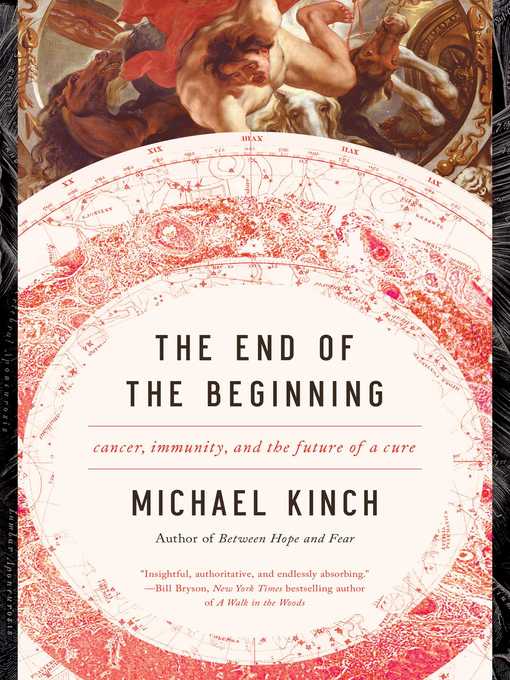
The End of the Beginning
کتاب های مرتبط
- اطلاعات
- نقد و بررسی
- دیدگاه کاربران
نقد و بررسی

February 1, 2019
A cancer researcher chronicles the history of the disease and the prospects in the search for a cure.A cure for cancer has been just around the corner for nearly a century but is drawing near, according to this richly detailed, expert description of the history of cancer, its treatment, and research that is now producing quantum-leap breakthrough therapy. Kinch (Between Hope and Fear: A History of Vaccines and Human Immunity, 2018), oncology researcher and professor at Washington University, begins before 1900 with the brilliant but mostly obscure researchers who gradually revealed the nature of cancer. Investigations of bacteria, a 19th-century obsession, were a dead end, but studies after 1900 found that tiny, nearly invisible particles, later revealed as viruses, were one cause. Knowledge of immunity also grew, but few associated this with cancer until after World War II, when scientists discovered that antibodies and white blood cells normally destroy tissues that become malignant but sometimes fail. Since the discovery of monoclonal antibodies and cell-based immunity in the 1970s and '80s, pharmaceutical companies have been creating treatments that program the patient's own immune system to attack cancer cells alone. This is a vast improvement over traditional chemotherapy, which poisons normal cells almost as badly as malignant ones. There have also been miracle cures in which massive tumors melt away, although they remain a minority. More commonly, the cancer shrinks for a time and then resumes growing. The best of today's cutting-edge therapies fail half the time, and serious toxicities are also turning up. Finally, these "biologicals" consist of complex molecules, hundreds of times larger than the old ones. Requiring enormous time and labor, they are wildly expensive--approaching $1 million per course.As the title suggests, scientists have reached only the end of the beginning, but the beginning of the end of cancer is on the horizon, and Kinch's intensely researched, definitely not dumbed down and lucid account makes this superbly clear.
COPYRIGHT(2019) Kirkus Reviews, ALL RIGHTS RESERVED.

February 18, 2019
Kinch (Between Hope and Fear), a radiation oncology professor at Washington University School of Medicine, approaches cancer philosophically in this well-grounded, if not groundbreaking, history of the search for a cure. Asking what is meant by the “deceiving” word “cancer,” he provides a nuanced answer that debunks misconceptions, such as cancer being a disease of accelerated cell growth, and painstakingly describes the immunization-based targeting of the disease. He sometimes indulges in elaborate asides, such as about how John D. Rockefeller’s family background motivated his founding the Rockefeller Institute, but generally remains focused, discussing many unusual cases—for example, actor Alec Guinness and his wife, Merula Silvia Salaman, dying in the same year of a rare carcinoma. Kinch also describes and explains the pioneering research linking cancer and viruses conducted worldwide during the last century. His own experiences in the 1980s bio-technology boom only come into play toward the end, where he describes the “ugly imbroglio of finger-pointing and greed” that blocked cutting-edge research. Readers may wish Kinch had given more time to this story but they will still gain from his thoughtful book an improved understanding of the “promises and perils” involved in finding a cure for cancer. Agent: Don Fehr, Trident Media Group.

























دیدگاه کاربران